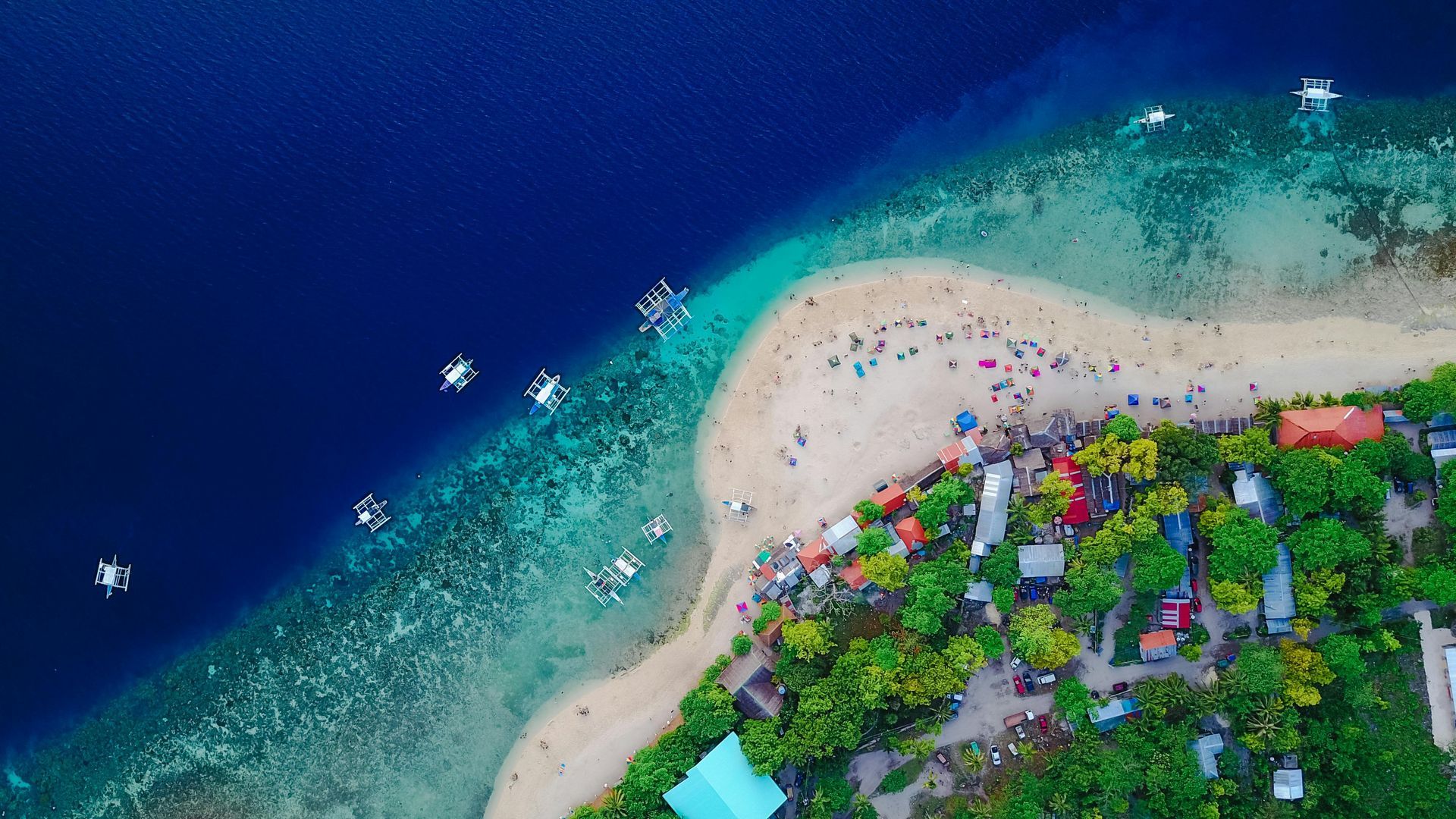Traveling Sustainably in Port Barton: How to Protect Palawan’s Paradise
🌿 A Guide to Ethical Adventures and Community-Powered Conservation
Port Barton, a hidden gem in Palawan, Philippines, is more than just a destination—it’s a fragile ecosystem and a thriving community fighting to preserve its natural beauty. While its pristine beaches and vibrant coral reefs draw travelers seeking an escape from mass tourism, the village faces pressing challenges: plastic pollution, overfishing, and the delicate balance between economic growth and environmental protection. This guide goes beyond typical sustainability tips to explore how you can become part of the solution, supporting initiatives that protect Port Barton’s paradise while experiencing its authentic culture.
Why Sustainability Matters in Port Barton
Port Barton’s allure lies in its unspoiled landscapes—crystal-clear waters, lush jungles, and coral reefs teeming with marine life. However, this paradise is at a crossroads:
- Environmental Threats: Dynamite fishing, mangrove deforestation, and plastic waste threaten marine ecosystems .
- Tourism Impact: Infrastructure remains rustic to minimize ecological footprints .
- Community Resilience: Over 65% of residents rely on fishing, but dwindling fish stocks have spurred a shift toward sustainable tourism .
Unlike commercialized destinations, Port Barton’s community-led initiatives prioritize *long-term conservation over short-term gains*. By traveling responsibly, you directly contribute to these efforts.
1. Support Community-Led Tourism Initiatives
Port Barton’s sustainability model is rooted in community-based tourism (CBT), where locals own, manage, and benefit from tourism activities. Key initiatives include:
- Barangay Babuyan Ecotourism: Offers guided tours to waterfalls, mangrove forests, and community projects, ensuring income stays within the village .
- Bangkeros Cooperative: A local boat operators’ group, like Tour Z, that advocates for reef-safe anchoring and marine cleanup drives .
- Tribal Adventures: Engage with Tagbanua indigenous communities to learn traditional fishing and cultural practices .
How to Engage:
- Book tours directly through cooperatives rather than international platforms.
- Choose operators like Tour Z, which allocates 7% of profits to education for Filipino children and 3% to turtle conservation.
2. Reduce Plastic and Waste
Port Barton has no formal waste management system. Most plastic ends up in landfills or the ocean.
- Carry a Reusable Kit: Bring a water bottle, utensils, and cloth bags. Refill stations are available at hostels like My Green Hostel (₱20/$0.35 per liter) .
- Avoid Single-Use Plastics: Decline straws and plastic packaging at local eateries like Star Apple Canteen.
- Participate in Cleanups: Join Coron Youth Club’s beach cleanups or organize one through your accommodation .
3. Protect Marine Ecosystems
Port Barton’s reefs suffer from anchor damage, sunscreen chemicals, and irresponsible snorkeling.
- Use Reef-Safe Sunscreen: Chemicals like oxybenzone bleach corals. Choose zinc-based alternatives.
- Snorkel Responsibly: Avoid touching corals or marine life. Maintain distance from turtles at popular sites like Turtle Spot.
- Support Marine Sanctuaries: Pay the ₱50 ($1) environmental fee at the tourism office—it funds reef monitoring and conservation .
4. Respect Cultural Heritage
Port Barton is a melting pot of cultures, with migrants from across the Philippines coexisting with indigenous Tagbanua communities .
- Learn Local Customs: Ask before photographing residents or sacred sites.
- Support Indigenous Crafts: Purchase handmade baskets from Tau’t Bato artisans or join weaving workshops .
- Eat Local: Dine at family-run carinderias (e.g., Evio’s Kitchen on Pamuayan Beach) to support sustainable livelihoods .
5. Choose Eco-Conscious Accommodations
Opt for stays that prioritize sustainability:
- Green Hill Cottages: Uses solar power and rainwater harvesting .
- Balili Eco Glamping: Built with bamboo and cogon grass to blend into the jungle .
- Ferranco Tourist Inn: A homestay that immerses guests in local life .
Avoid properties that encroach on mangrove forests or lack waste treatment systems.
6. Engage in Regenerative Activities
Move beyond passive sightseeing and contribute actively:
- Mangrove Reforestation: Plant trees with PCART (Palawan Center for Appropriate Rural Technology) to prevent coastal erosion .
- Turtle Conservation: Volunteer with Bantay Pawikan during nesting season (October–February) to protect hatchlings .
- Organic Farming: Work alongside farmers like Manong Willyn, a Batak tribal member developing agri-tourism projects .
7. Travel During Off-Peak Seasons
- Low Season (June–October): Fewer tourists reduce pressure on resources. Though rain is common, landscapes are lush, and prices are lower .
- Avoid Peak Holidays: Holy Week (March/April) and Christmas attract crowds, straining water and energy supplies.
8. Support Local Economies Directly
- Buy from Sari-Sari Stores: These small shops sell local snacks and essentials. .
- Donate Wisely: Support schools like Lamane Tribal School with books or supplies instead of giving cash to children.
How Tour Z Embodies Sustainable Tourism
At Tour Z, sustainability is woven into every experience:
- Reverse Route Itineraries: Our counter-clockwise island-hopping tours reduce congestion at sensitive sites like Twin Reef and Starfish Sandbar.
- Community Partnerships: We collaborate with local fisherfolk to ensure fair wages and cultural exchange.
- Education & Conservation: Profits support youth scholarships and turtle sanctuary efforts, aligning with Port Barton’s long-term vision .
The Future of Port Barton: A Collective Responsibility
Port Barton’s fate hinges on mindful travel. As infrastructure improves (e.g., San Vicente Airport’s expansion), the community strives to avoid El Nido’s overtourism pitfalls. Your choices matter:
- Advocate for Change: Urge tour operators to adopt eco-friendly practices.
- Share Responsibly: Avoid geotagging fragile sites on social media.
- Return Giving: Volunteer with organizations like PCART or Palawan NGO Network Inc.
Conclusion: Travel Deeply, Not Just Lightly
Sustainable travel in Port Barton isn’t about perfection—it’s about progress. By choosing community-led tours, reducing waste, and respecting natural and cultural heritage, you become a guardian of Palawan’s last ecological frontier. As Manong Willyn, a Batak farmer, reminds us: "Paradise is not ours to inherit; it’s ours to protect."
Ready to make a difference? Book with Tour Z for adventures that give back, and join the movement to keep Port Barton wild and welcoming.

